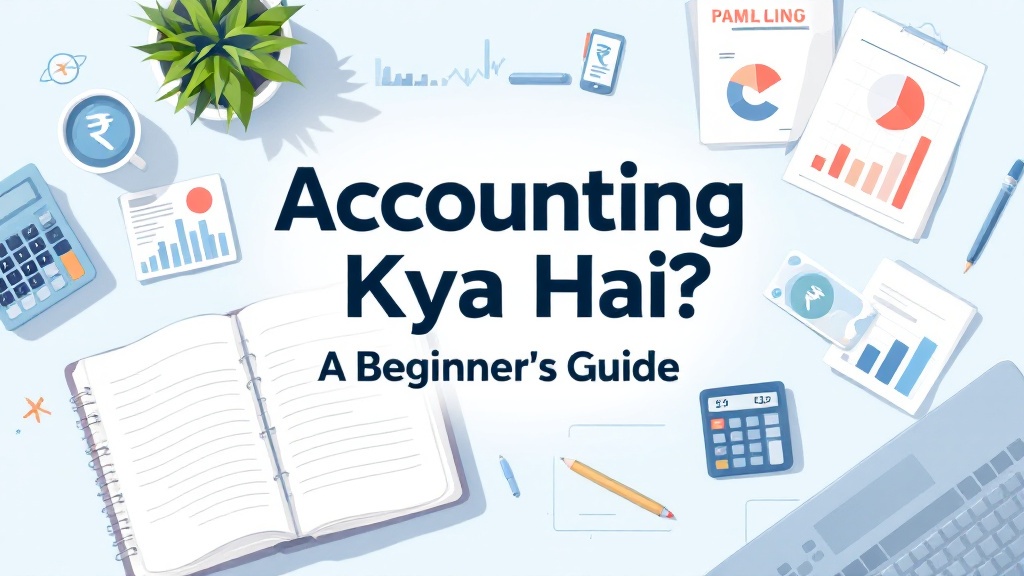Unlocking the Power of Accounting Knowledge: A Guide for Entrepreneurs and Professionals
Table of Contents
Most Read
[fusion_dropcap class="fusion-content-tb-dropcap"]I[/fusion_dropcap]ntroduction: Why Accounting Knowledge Matters Accounting isn’t just about numbers; it’s the language of business. Whether you’re a budding entrepreneur, a seasoned business owner, or a finance enthusiast, understanding accounting basics can dramatically impact your ability to make informed decisions. From tracking income and expenses to preparing for tax season, a solid grasp of accounting can be your secret weapon for long-term success.
In this blog post, we’ll explore the fundamentals of accounting, why it matters, and how you can start building your accounting knowledge to drive smarter business decisions.
1. What is Accounting? At its core, accounting is the process of recording, summarizing, analyzing, and reporting financial transactions. It provides a clear snapshot of a business’s financial health and serves as the foundation for financial planning and decision-making.
Key Functions of Accounting:
- Recording Transactions: Documenting every financial movement.
- Classifying Data: Grouping similar transactions together.
- Summarizing Information: Creating financial statements like profit & loss, balance sheet, and cash flow statement.
- Analyzing Results: Understanding the meaning behind the numbers.
- Reporting Outcomes: Sharing insights with stakeholders, including management, investors, and regulatory bodies.
2. Types of Accounting You Should Know Accounting is not one-size-fits-all. There are several types of accounting that serve different purposes:
- Financial Accounting: Focuses on preparing financial statements for external stakeholders.
- Management Accounting: Used internally to assist in decision-making and planning.
- Tax Accounting: Ensures compliance with tax regulations and optimizes tax liability.
- Cost Accounting: Helps track, control, and reduce business costs.
- Forensic Accounting: Involves investigating financial discrepancies and fraud.
3. Essential Accounting Concepts for Beginners If you’re new to accounting, start with these key principles:
- Accrual vs. Cash Basis: Accrual accounting records revenues and expenses when they’re incurred, not when cash is exchanged. Cash basis records only actual cash transactions.
- Double-Entry System: Every transaction affects two accounts. For example, buying inventory increases assets and decreases cash.
- Debits and Credits: Debits go on the left, credits on the right. This keeps the accounting equation in balance.
- The Accounting Equation: Assets = Liabilities + Equity. It’s the core of all accounting systems.
Understanding these basics can help you read financial statements and grasp the story your numbers are telling.
4. How Accounting Knowledge Benefits Entrepreneurs Entrepreneurs wear many hats, and accounting is one they shouldn’t ignore. Here’s why:
- Better Cash Flow Management: Know where your money is coming from and going.
- Informed Decision-Making: Use real data to guide investments, hiring, and pricing strategies.
- Investor Confidence: Transparent financials attract potential investors and lenders.
- Regulatory Compliance: Avoid penalties by staying on top of tax filings and statutory reports.
Even a basic understanding can help entrepreneurs avoid financial pitfalls and focus on growth.
5. Common Accounting Mistakes to Avoid
- Mixing Personal and Business Finances: Always keep them separate to ensure clarity and compliance.
- Not Backing Up Data: Losing records can lead to legal and financial trouble.
- Ignoring Small Expenses: They add up! Track every rupee spent.
- Failing to Reconcile Bank Statements: This ensures your records match your actual cash balance.
- Skipping Professional Help: DIY is great, but a certified accountant can provide expert insights.
6. Tools and Resources to Build Your Accounting Knowledge Today, learning accounting is easier than ever with the right tools:
- Online Courses: Platforms like Coursera, Udemy, and Khan Academy offer beginner to advanced accounting lessons.
- Accounting Software: Tools like Tally, QuickBooks, and Zoho Books can teach you through real-world application.
- Books: Consider titles like “Accounting Made Simple” or “The Accounting Game.”
- YouTube Channels and Blogs: Many experts share free, valuable content in a conversational format.
7. When to Hire an Accountant While self-learning is valuable, there comes a time when professional help is essential:
- During tax season
- When applying for loans or investment
- For complex payroll systems
- When scaling your business
- If you face audits or legal scrutiny
Hiring a professional doesn’t mean giving up control—it means gaining clarity.
Conclusion: Make Accounting Your Ally Understanding accounting is not just for accountants—it’s for everyone who wants to make smarter financial decisions. By learning the basics, avoiding common mistakes, and using the right tools, you empower yourself to grow your business with confidence.
Start small. Stay consistent. And remember, every great business decision begins with great accounting knowledge.
Ready to boost your business with expert accounting support? Connect with Accounting24 today and take control of your finances!
Visit Our Website : Accounting24.in









